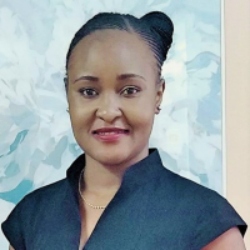Mahatma Gandhi one of history’s greatest advocates of non-violence proved through the example of his life that the moral and spiritual power of non-violence is far greater than any form of physical force or human brutality. His legacy of thought and action is as relevant today as a beacon of hope in our troubled times to the men, women and children living under all forms of oppression.
Violence against children is an area becoming a public health concern and a significant problem throughout the African continent as it is around the world. Children are part of the vulnerable groups, and in a year, about one billion children are subjected to violent acts across the globe. A child can be the target of violence, witness, or be exposed to it.
ChildFund rolls out initiative to combat online exploitation and abuse of children
Every human being, regardless of ethnicity, status, religion, education, or whatever circumstances, has a right to live in a peaceful world that is free from all sorts of violence. However, there is an urgent need for more action to prevent and respond to the threat posed by violence to children’s mental health in Kenya. Moreover, tackling violence against children in Kenya should consider broader social, cultural, and economic contexts (including poverty, inequality, and family fragmentation) where children live.
In Kenya, children experience or are exposed to violent acts in their communities, families, schools, neighbourhoods, media, and even the judicial system. Physical violence, including corporal punishment, sexual violence, and mental violence, including verbal abuse, cruelty, and harassment, are some common types of violence that children grapple with daily.
Research has demonstrated that violence against children has short-term and long-term consequences that can impact children’s growth and development. In addition, exposure to violence is often traumatic. It can lead to depression, post-traumatic stress disorder, borderline personality disorder, anxiety, substance use disorders, sleep and eating disorders, and suicide.
Article 53 of the 2010 Constitution of Kenya recognizes the right of all children to be protected from abuse, neglect, harmful cultural practices, violence, inhumane treatment, punishment, and hazardous or exploitative labour. In addition, the 2014 Marriage Act set the minimum age of marriage at 18 years – a move that ensured the establishment of child-focused protection units in select police stations.
Further, there is a toll-free Child Helpline that allows reporting of child abuse and provides free services to survivors of childhood violence, including medical referrals. Across all the 47 Counties in Kenya, there are children departments and community-based child protection mechanisms. However, there are still rampant cases of child violence in Kenya.
The commonly reported form of violence in Kenya is physical violence in the form of corporal punishment – widely practised at home, schools and in the community. Corporal punishment (CP) is “the use of physical force with the intention of causing a child to experience pain, but not injury, for the purpose of correcting the child’s behaviours”. It is a criminal act to hit or assault children. Yet, society condones such acts of violence against children and is perceived as a way of ‘disciplining’ them.
Chebukati did nothing wrong, he acted by law
Why is our society lenient to such violent acts against children? Why is corporal punishment the first conflict resolution method parents, teachers or the community regress to in Kenya? How can parents expect children to become responsible adults who can communicate clearly when no such communicative behaviours are modelled and exhibited during childhood? Did you know that the cumulative impacts of violence against children play a crucial role in shaping their mental health as children transition from childhood to adulthood? And can such negative experiences be passed from one generation to the next?
The United Nations Committee on the Rights of the Child, the UN Special Rapporteur on Torture and the European Court of Human Rights have all spoken out against all forms of violence against children, including corporal punishment – which has been viewed to be a form of cruel, inhuman, or degrading treatment.
The path to non-violence is fundamental to every Kenyan, as is to every human being in the world, and speaks to a society in which everyone wants to live. So let us all work together to protect our children against all forms of violence in Kenya.

